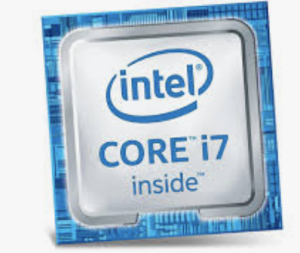
The Intel Core i7 processor is a family of high-performance CPUs developed by Intel, aimed at demanding users such as gamers, content creators, and professionals. Here’s a comprehensive overview of what the Intel Core i7 represents, its features, and its applications.
Table of Contents
Toggle1. What is Intel Core i7?
Intel Core i7 is part of Intel’s Core lineup, which includes i3, i5, i7, and i9 processors. The i7 series sits in the upper mid-range, providing a balance between performance and power consumption. It is designed for users who require more processing power than what the i3 or i5 can offer but do not necessarily need the extreme capabilities of the i9.
2. Key Features
a. Multi-Core Architecture
- Cores and Threads: Most i7 processors feature 4 to 16 cores and support Hyper-Threading, allowing each core to handle two threads simultaneously. This enhances multitasking and improves performance in multi-threaded applications.
b. Turbo Boost Technology
- Dynamic Performance: Intel Turbo Boost technology enables the processor to automatically increase its clock speed when needed, providing extra performance during demanding tasks without compromising energy efficiency.
c. Integrated Graphics
- Many i7 processors come with Intel’s integrated graphics, which can handle basic gaming and multimedia tasks without the need for a dedicated graphics card.
d. Cache Memory
- i7 processors typically include a larger cache (ranging from 8MB to 25MB) compared to i5 and i3 processors. This helps speed up data access and improves overall performance.
e. Support for Advanced Technologies
- DDR4/DDR5 Memory Support: Depending on the generation, i7 processors support high-speed RAM, enhancing data transfer rates.
- PCIe Lanes: They provide multiple PCIe lanes for connecting high-speed components like NVMe SSDs and graphics cards.
3. Generations of Intel Core i7
Intel regularly updates its processor lineup, with each new generation bringing improvements in performance, power efficiency, and features. As of 2023, the latest generations include:
- 10th Generation (Comet Lake)
- 11th Generation (Rocket Lake)
- 12th Generation (Alder Lake)
- 13th Generation (Raptor Lake)
Each generation typically introduces enhancements in architecture, manufacturing process, and integrated graphics capabilities.
4. Applications of Intel Core i7 Processors
Intel Core i7 processors are versatile and suitable for various applications:
- Gaming: With high clock speeds and multi-core support, i7 CPUs can handle modern games at high settings.
- Content Creation: Ideal for video editing, 3D rendering, and graphic design due to their powerful performance in multi-threaded tasks.
- Productivity: Perfect for professionals using demanding software like CAD applications, data analysis tools, and virtual machines.
5. Conclusion
The Intel Core i7 processor is a robust choice for users seeking high performance without stepping into the premium i9 category. Its combination of multi-core capabilities, Turbo Boost technology, and support for advanced features makes it an excellent option for gamers, creators, and professionals alike. When choosing a processor, consider your specific needs and the generation of the i7 to ensure you get the best performance for your tasks.
- Everything You Need To Know About Limit Switch - May 21, 2025
- Everthing You Should Know About Rheostat - May 20, 2025
- Everything You Need To Know About Reversing Contactor - May 19, 2025






